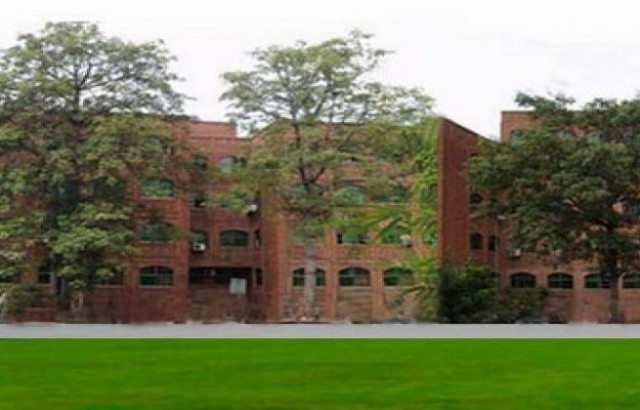Modern medicine: Deep Brain Stimulation offers Parkinson’s patients new hope
The procedure is available at the Lahore General Hospital only

The procedure is available at the Lahore General Hospital only. PHOTO: LGH.ORG.PK
Abdul Aziz Ansari, 59, has been suffering from Parkinson’s disease for 13 years. His son Mohsin Ansari says his father had fainted several times over past years, and of late, has been unable to eat, move or talk properly. “At times he does not even understand what he is saying.”
In December 2014, he was referred to the Lahore General Hospital – so far the only medical institution in the country using Deep Brain Stimulation (DBS) to treat Parkinson’s disease (PD).
Ansari is one of nine patients to receive DBS in the third round of the treatment at the LGH. The process of consultation and tests for the third round has begun and surgeries will start from July 4.
Postgraduate Medical Institute Principal Professor Khalid Mahmood says the procedure is currently the “gold standard”. He says he has been trying to get the procedure introduced in Pakistan for seven years. The first DBS surgery was conducted on October 30, 2014.

The government sanctioned Rs300 million to purchase equipment – MRI scan, Stereotactic Leksell G Frame, C-arm, Schaltenbrand Digital Atlas and Cosman G4 Lesion Generator – for the DBS surgery over the last seven years.
Doctors involved in the programme say the success rate for DBS surgery is 99 per cent because of its high precision. Seven patients have undergone the procedure so far.
Mahmood says they had faced a lot of hurdles when they were trying to bring the technology to Pakistan. He says they had to call in a team from Singapore to help read micro-electrode recordings (MER). When they purchased the equipment from Leksell Stereotactic System, the company refused to send its technicians because of a poor law and order situation in Pakistan. He says the hospital had had to involve various pressure groups to advocate their case after which the company finally agreed to send a team to Pakistan.
Dr Hassan Raza, one of seven neurosurgeons being trained to perform DBS surgery, says the procedure costs around Rs10 million in America and Europe. It costs around Rs2 million in Pakistan, which mainly covers the cost of the IPG device, he says.
Talking about risks involved in the process, Mahmood says it is the safest procedure for patients of Parkinson’s disease. He says the technology used in the process ensures high precision.
A team of doctors which includes speech-therapists, neurologists, psychiatrists and neurosurgeons refer patients for the surgery. The team considers various factors including age, intensity and the patients’ consent. Mahmood says only 15 per cent to 20 per cent of patients suffering from Parkinson’s disease patients are referred for surgery and only 60,000 out of 600,000 patients undergo the process.
Khadim Hussian Zia, 69, one of the patients who have undergone DBS surgery at the LGH, says he has been suffering from Parkinson’s disease for 16 years and had a limited personal and social life. He says the DBS procedure has helped him improve his eating habits and become stable socially. His son Hassan Ali says he has seen a lot of improvement in his father’s life after the procedure. He says it has helped his father get rid of tremors and rigidity.
Dr Aftab Asif, head of the Department of Psychiatry at King Edward Medical University, is on the board that recommends patients for the surgical procedure. Asif says that the degenerative disease affects patients psychologically and there is a limit to which medicines can help them.
He says psychiatrists try to improve the patients’ mood and use medicines to treat them, “but sometimes that is not enough”. He says they are given anti-depressants and counselling as well. “There are several factors we take into consideration before recommending a patient for surgery.”
Ablation surgery procedure
Mahmood says neurosurgeons in Pakistan have been conducting ablation surgery procedures on patients of Parkinson’s disease since 1964.
The procedure involves thermo-coagulation, which involves heat generated by electricity, which is used to remove certain tissues in the brain to treat the patient.
Mahmood says the procedure, however, had a lot of side effects. Only a few countries now stick to the ablation procedure and all developed countries use DBS, he says.
Mahmood says that the PGMI has been working on incorporating modern developments in ablation surgery as well.
Dr Rizwan Ahmad, a neurosurgeon currently working on a thesis on ablation surgery, says the treatment has limited benefits and there are lots of risks involved. The procedure can damage some brain cells permanently which can cause a host of compilations, he says.
Published in The Express Tribune, July 3rd, 2015.


















COMMENTS
Comments are moderated and generally will be posted if they are on-topic and not abusive.
For more information, please see our Comments FAQ